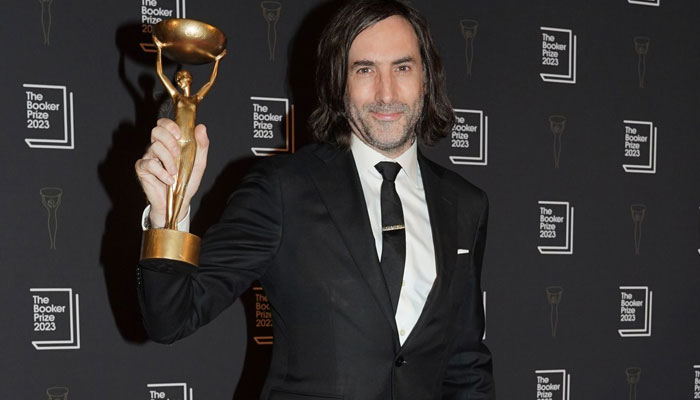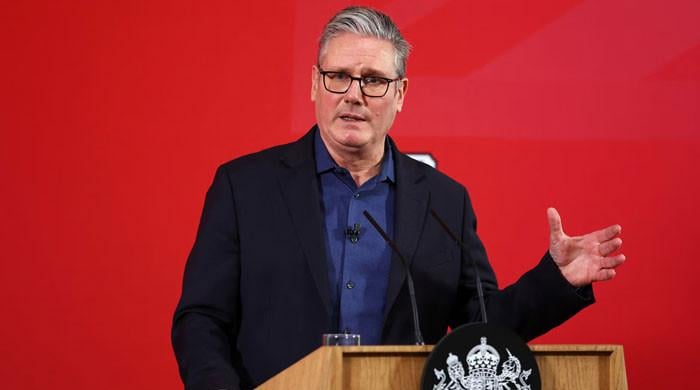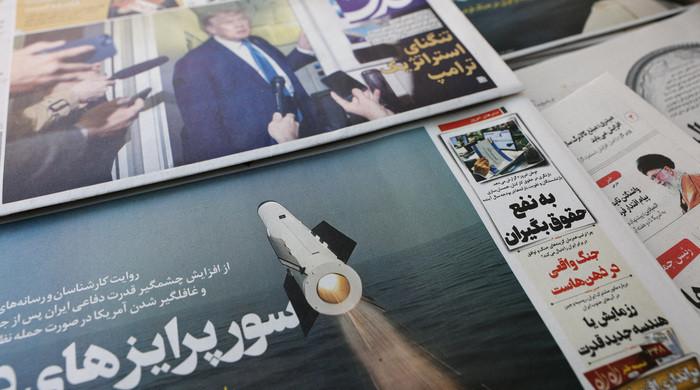‘Prophet Song’: Did Paul Lynch get Booker Prize because his novel predicted Dublin riots?
Paul Lynch's novel 'Prophet Song' is about the rise of a fascist regime in a dystopian Dublin
November 28, 2023

The author of Booker-Prize-winning "Prophet Song" Paul Lynch, a dystopian novel about the rise of a fascist regime in Dublin, has clarified that he did not intend to predict the riots in his novel that won the award.
Lynch's book "Prophet Song", is about the rise of a fascist regime in Dublin. He insisted that he wasn't trying to make predictions as the Booker Prize judges said Thursday's riots had no influence over their deliberations on Saturday.
But Paul Lynch, who was awarded the prestigious Booker Prize on Sunday, said he wasn't trying to make predictions about the rise of the far-right in Ireland.
Mr Lynch, who lives in Dublin, told Sky News: "I think that type of energy is always there. The question is what becomes of it or how it's channelled.
"We find ourselves in Ireland now where we do have a far-right presence. We need to think about that and what that means.
"Does it mean Prophet Song happening? I don't truly believe so but we must be asking questions."
Mr Lynch's novel is set in a counterfactual Ireland which is ruled by a totalitarian regime. It centres around Eilish Stack, a mother-of-four forced to protect her family after her union leader husband "disappeared".
But the Booker Prize judges were separately forced to defend their decision to award the prize to Mr Lynch.
Chairwoman of the 2023 judges Esi Edugyan said in a press conference that Thursday's riots in Dublin were "mentioned at some point" during deliberations on Saturday, adding: "I really have to stress that that was not the reason that Prophet Song won the prize."
She said: "It wasn't the central factor. It was in the discussion, I will admit that this was something that did get raised. But this is a literary prize for the most polished, accomplished work of literature published in the UK and Ireland this year and that was the guiding principle - does this book succeed artistically?
"One cannot let world events dictate what it is that one chooses as the best novel published in English that year."
The period in which 46-year-old Lynch wrote his fifth novel, from 2018 until 2022, was a time of great adversity for both himself and the world. He was diagnosed with a kidney tumour, contracted long COVID and separated from his wife.
But he was spurred on to write his Booker Prize-winning book about the Syrian civil war and subsequent refugee crisis.
"It's pretty normal for most of us when we're watching the news to be desensitised by what we're watching because the spectacle has bombarded us for decades," he said.
"It's the nature of all of us to put up our self-defences because if we were truly able to take on what we're watching, we wouldn't be able to get out of bed in the morning.
"I think writers of fiction have a duty to get us out of our worlds and into other worlds. In Prophet Song, that's what I'm doing. I'm placing you and transposing the reality that's alien to Ireland.
"We do have a failure of imagination when it comes to truly understanding what makes somebody, for example, get on those boats with a child. In many ways, we don't quite understand the complexities of what's involved in getting a person to that point.
"And so Prophet Song was my own way of understanding this, of asking these questions so I could understand… for any of us to leave home willingly, it's one of the most difficult decisions you'll ever make. And usually, you're forced to do it."
The dystopian nature of Lynch's fifth book was a left turn from his first four - something he plans to repeat after completing the obligations of "wearing the Booker tiara".
"I'm going to come back with something peculiar and strange. There's nothing else to do when you win the Booker but to go off track. That's the only response," he said.
Mr Lynch beat Paul Murray's The Bee Sting, Sarah Bernstein's Study For Obedience, Paul Harding's This Other Eden, Chetna Maroo's Western Lane and Jonathan Escoffery's If I Survive You to take home a £50,000 prize - which he said will go towards his mortgage.











